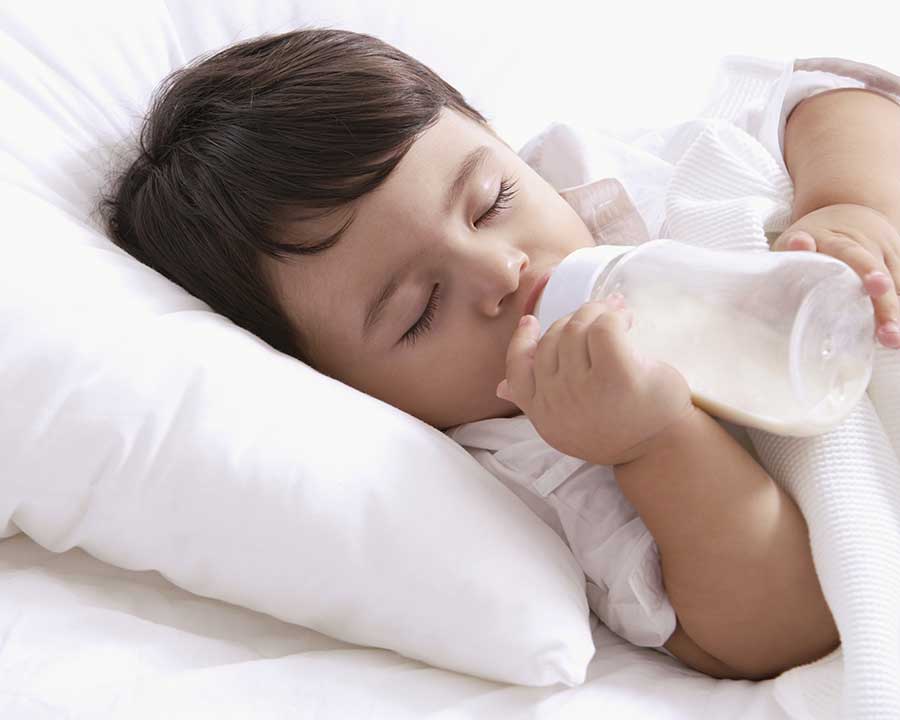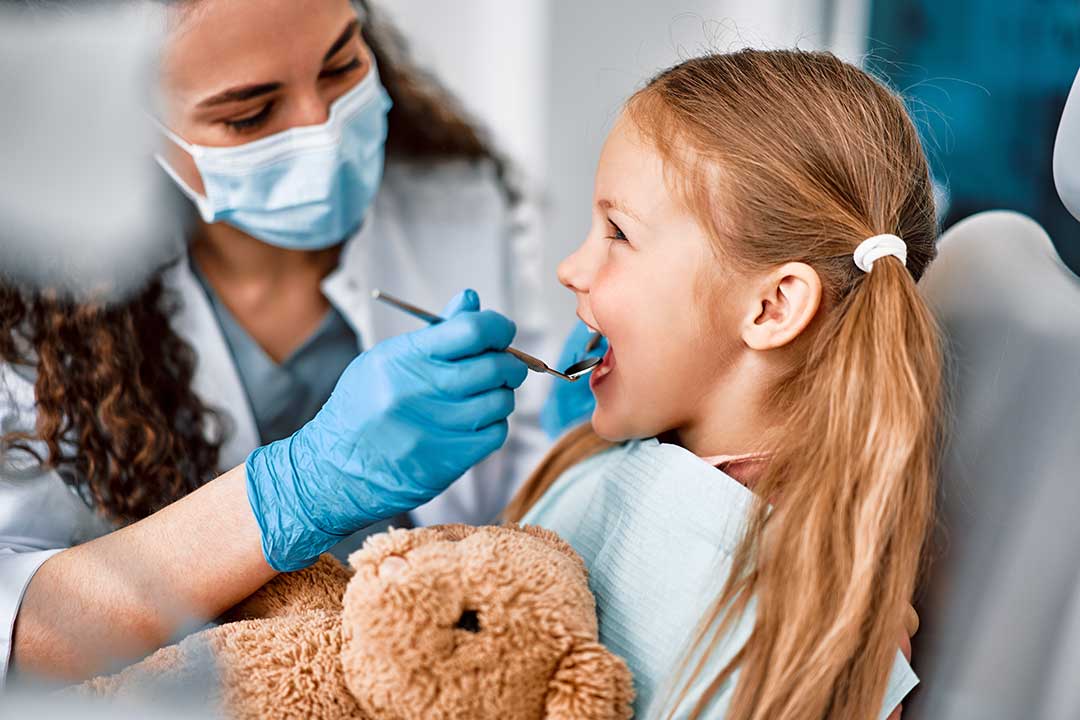As first-time moms and dads, one of your top priorities is ensuring your child’s health and well-being, and that includes their oral health. The foundation for a healthy smile begins early, and establishing good habits during childhood can set the stage for a lifetime of dental wellness.
In this article, our pediatric dentists share key steps parents can take to protect children’s teeth from infancy through childhood.
Start dental care early.
One of the most important tips for parents is to begin dental care early, even before your child’s first tooth appears. Clean your baby’s gums with a soft, damp cloth after feeding to remove bacteria and prevent plaque buildup. This simple step helps prepare your child for future oral care when teeth begin to erupt.
Schedule the first dental visit by age 1.
We recommend that children visit the dentist as soon as the first tooth erupts or by their first birthday. This initial visit helps establish a dental home for your child and allows the dentist to assess your child’s oral health early on.
During this visit, the pediatric dentist will examine your child’s teeth and gums, discuss teething, and provide tips on brushing and diet to prevent cavities. Early dental visits also allow your child to become comfortable with the dentist, helping to reduce anxiety in future appointments.
See also
What Are the Early Warning Signs of Cavities in Children?
Use fluoride to protect teeth.
Fluoride is a natural mineral that strengthens tooth enamel and helps prevent cavities. It is critical for maintaining good oral health in children.
Once the first tooth comes in, usually around 6 months of age, it’s time to start brushing. Use a small, soft-bristled toothbrush with a tiny smear of fluoride toothpaste (about the size of a grain of rice) for children under 3 years old, and a pea-sized amount for children over 3.
Avoid bottle tooth decay.
One of the most common oral health issues in young children is Early Childhood Caries (ECC), also known as baby bottle tooth decay. This condition is caused by prolonged exposure of your child’s teeth to sugary drinks, including milk, formula, and juice, especially when the child is put to bed with a bottle.
To prevent ECC, we advise parents to avoid putting their child to bed with a bottle, and instead, offer water if needed. It’s also important to clean your child’s teeth after feeding and introduce a cup by 12 months of age to reduce prolonged bottle use.
See also
Is fruit juice good for your child’s oral health?

Encourage a healthy diet.
A nutritious diet is essential for maintaining good oral health in children. Foods rich in vitamins and minerals, such as fruits, vegetables, and dairy products, help support strong teeth and gums. Limit sugary snacks and beverages, as these can contribute to the development of cavities.
Offering water between meals and after snacks can help wash away food particles and prevent plaque buildup. Avoid sticky, sugary snacks like candies and gummies, which can cling to teeth and increase the risk of cavities.
Teach Proper Brushing and Flossing Habits
As your child grows, it’s essential to teach them proper brushing and flossing techniques. By age 2 or 3, most children can start learning how to brush their teeth with supervision. Show them how to brush all surfaces of the teeth, including the front, back, and chewing surfaces, and supervise them until they can do it correctly on their own, usually around age 7 or 8.
Flossing should begin when your child’s teeth start to touch. Help your child floss daily to remove plaque and food particles from between the teeth, which brushing alone cannot reach.
Prevent dental injuries.
Active children are more prone to dental injuries, especially during sports or play. We recommend using a mouthguard to protect your child’s teeth, lips, and gums during physical activities. A custom-fitted mouthguard from your pediatric dentist offers the best protection and comfort.
Additionally, it’s important to childproof your home to prevent falls and other accidents that could harm your child’s teeth. If your child experiences a dental injury, contact your pediatric dentist immediately for advice and treatment.
Establish regular dental checkups and cleanings.
Routine dental checkups are essential for monitoring your child’s oral health and catching any potential problems early. We recommend scheduling dental visits every six months or as recommended by your dentist. These checkups allow us to assess your child’s oral health, provide professional cleanings, and offer preventive treatments such as fluoride varnishes or sealants.
Consider dental sealants for extra protection
Dental sealants are a preventive treatment that involves applying a thin protective coating to the chewing surfaces of the back teeth (molars). Molars are more susceptible to cavities because of their deep grooves, which can trap food and bacteria.
Dental sealants are an effective way to reduce the risk of cavities in children. Sealants act as a barrier, protecting the enamel from plaque and acids. Your pediatric dentist may recommend sealants for your child once their permanent molars come in, usually around ages 6 and 12.
See also
Does my 4-year-old child really need a crown?
As a first-time parent, understanding your child’s oral health needs is crucial for preventing dental problems and establishing a foundation for a healthy smile. By following these, you can help your child develop strong teeth, healthy gums, and good oral hygiene habits that will last a lifetime.
For more information and personalized advice, schedule an appointment with one of our Specialist Pediatric Dentists at Drs. Nicolas & Asp Centers. We’re here to help your child enjoy a bright and healthy smile!


